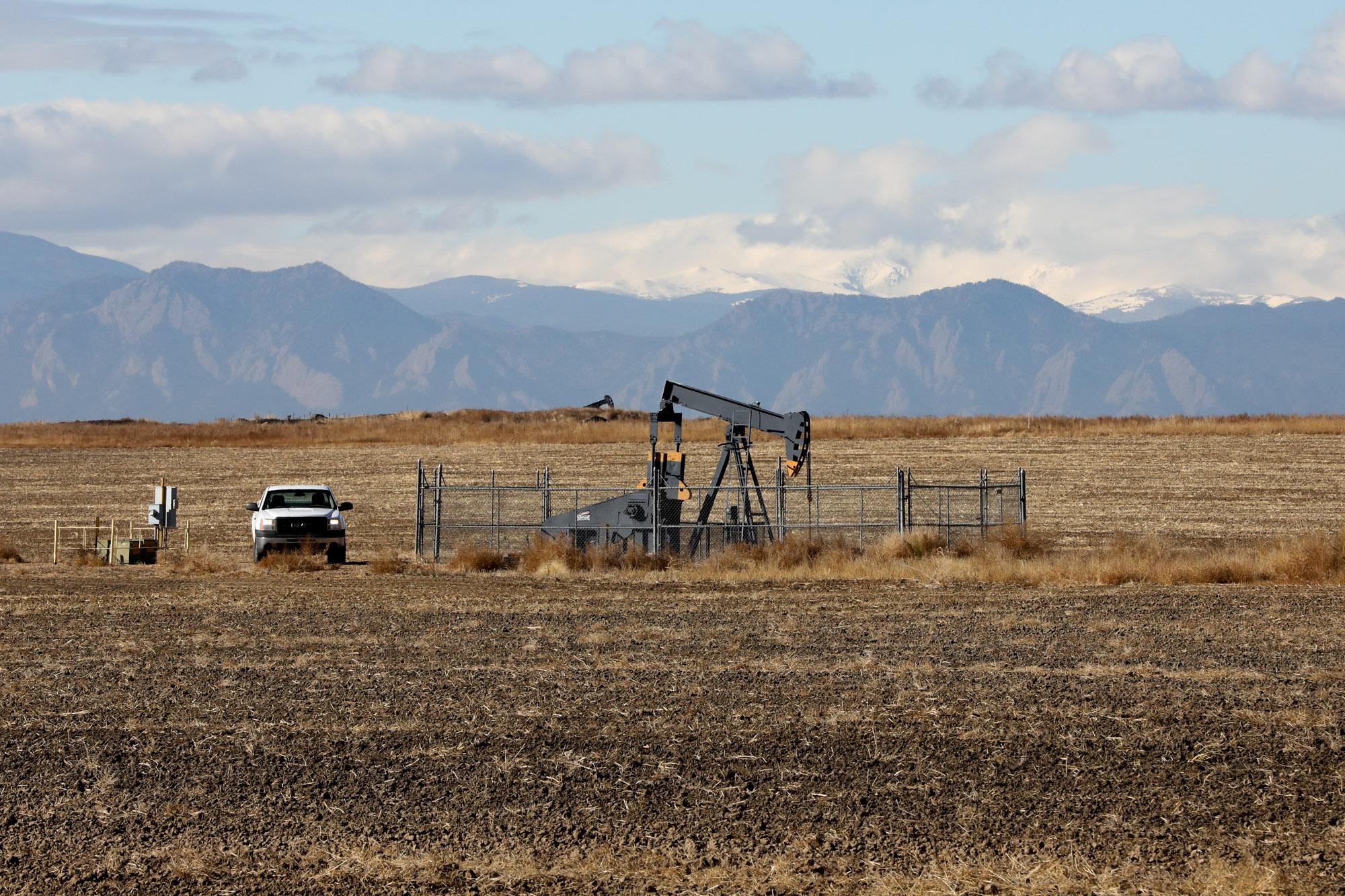
Gas prices across the U.S. have been climbing for a while — and the U.S. ban on Russian oil imports following the invasion of Ukraine are pushing them up even more. It might seem like a good time for Colorado’s oil companies to increase their output. But it’s not that simple.
A lot of oil rigs went dormant in Colorado over the last two years. Demand dried up when people stopped driving and flying during the COVID-19 pandemic. Also, energy prices were starting to fall even before the coronavirus shut down the economy — so producers stopped drilling.
The number of active rigs in the state plunged to as low as four in 2020, down from more than 20 just before COVID-19 hit the U.S. and upwards of 30 in the summer of 2019, according to Baker Hughes data.
Fast forward two years, and we’ve got COVID vaccines, cases are rapidly declining, and people are on the move again. That means demand for gas is back up, too. Moreover, while the U.S. doesn’t get a lot of its oil from Russia, other countries do.
With many people shunning Russian products right now — the U.S. banned energy imports from the country entirely — it would seem like a good time for Colorado producers to get those rigs back on line.
That’s not what’s happening. The number of active rigs in Colorado has held steady at about 14 since February.
“It is not a case of just flipping a switch or turning a valve,” said Frank Laird, a professor at the University of Denver who specializes in energy policy.
It's pricy to open up an oil well
It takes a lot of money to reopen an old well that’s been shut down, and even more to drill a new one, Laird said. When energy companies make those investments, they want to be sure it’s worth it — in other words, they want to be sure prices at the pump will stay high enough to ensure their profits.
“It’s so hard to predict what’s going to happen. Things are so volatile now that I can imagine oil producers here wanting to just sit tight and wait and see what happens,” Laird said.
Oil producers took a big hit to their bottom lines during the pandemic, and they aren’t in a mood to take risks, according to Laird. Neither are their investors, who are already benefiting from higher gas prices in the form of dividends and share buybacks.
Oil is a global market. That means that what OPEC and other oil-producing countries end up doing is going to have a lot more of an impact on prices than what any individual producer in Colorado decides to do, Laird said. That’s a variable that’s hard for domestic oil producers to take into account when deciding when and how much oil to pump.
“If the Gulf producers really ramp up production, that will tamp down prices,” he said.
It's a volatile time for oil
At the same, COVID-19 is still an issue that’s adding to the volatility of the global oil market. This week, for instance, crude oil prices plunged because of new coronavirus lockdowns in China and the possibility that Russia may be signaling its willingness to negotiate over its invasion of Ukraine.
If gas prices were to stay at current levels for the next year, oil companies in Colorado might increase their production in 2023, says Steve Diederichs, a vice president at Enverus, an energy analytics and software company.
Even if oil producers wanted to turn production up fast, it would be tough, he said. For one thing, there aren’t enough rigs that are in good working condition to ramp production up quickly.
“The more complicated the rig is, the more maintenance you'd potentially have to do on it if it's been sitting for 18 months or two years. So there's certainly not some available pool that can be deployed today,” he said.
And, yes, the supply chain and staffing are still issues, too
On top of that, energy companies are dealing with a lot of the same issues that businesses of all kinds — across the country — are dealing with, including bottlenecks in the supply chain. For example, it’s hard to get the raw materials for all the piping and tubing you need to drill, Diederichs said.
“Steel is one of those materials that you're gonna be competing with any and every construction or raw materials related industry … It's just hard to get your hands on it right now,” he said.
And, he added, staffing is also a problem. That’s because, in part, there were a lot of layoffs during the pandemic downturn.
“You're going to get people that just don't want to have the risk to their career associated with the volatility of the industry,” he said.
Oil production in Colorado is dominated by just four companies at this point – Occidental, Chevron, PDC Energy and Civitas. None of them agreed to an interview with CPR News.
But Dan Haley, the president of the Colorado Oil and Gas Association, says new regulations in Colorado are slowing down the permitting process — making it even harder to increase production. Nevertheless, Colorado’s energy industry could play a critical part in controlling fuel prices in the longer term, Hayley said.
“Colorado is the fifth-largest producer of crude oil in the country and the seventh-largest producer of natural gas,” he said. “So we certainly have a role to play in terms of helping with this supply crisis or supply issue that the world is seeing right now.”







